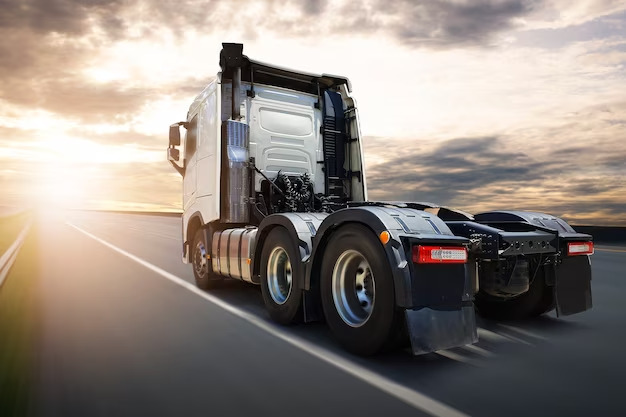In the realm of freight transportation, a Flat Bed stands as a versatile and essential option for carrying goods of various shapes, sizes, and types. A Flatbed trailer, often referred to as a flatbed truck, is distinguished by its open and flat cargo-carrying surface. This unique design allows for the transportation of oversized or unconventional cargo that cannot fit inside standard enclosed trailers. The versatility and stability of flatbeds make them a crucial component of the logistics industry, meeting the demands of specialized freight movement.

Understanding Flat Bed Trailers
A Flat Bed trailer is essentially a platform trailer characterized by a level or “flat” bed with no sides or roof. The absence of walls or enclosures allows for easy loading and unloading of cargo from any side of the trailer. Flat Beds come in various sizes and configurations, including standard flatbeds, drop decks, and lowboy trailers, each designed to accommodate different types of cargo.
Flat Bed trailers are equipped with securing mechanisms such as straps, chains, and binders to secure the cargo during transit, ensuring safe transportation. The versatility and open design of flatbeds make them suitable for a wide range of freight, including construction materials, machinery, vehicles, industrial equipment, and more.
Versatility and Flexible Cargo Handling
The primary advantage of a Flat Bed lies in its versatility and adaptability to a diverse range of cargo. Its open platform allows for the transport of goods that may be too large, heavy, or unwieldy for standard enclosed trailers. Manufacturers, construction companies, and suppliers often rely on Flat Beds to transport items like steel beams, timber, concrete blocks, machinery, and even vehicles.
Moreover, the absence of walls and enclosures facilitates easier loading and unloading from any angle, making it efficient for both forklift and crane operations. This versatility allows for a seamless transportation process, ensuring that various types of cargo reach their destinations intact and on time.
Secure Cargo Transportation
While the open design of flatbed trailers offers flexibility, it also necessitates the need for secure cargo handling during transportation. Proper securing mechanisms, such as tie-downs, straps, chains, and binders, are employed to stabilize and secure the cargo to the bed of the trailer. Drivers and operators must ensure that the cargo is adequately tied down and distributed evenly to maintain balance and prevent shifting during transit.
Additionally, certain cargoes may require specialized securing techniques to ensure safe transportation. Over-dimensional or unusually shaped cargo may need extra care and attention in terms of securing to avoid any accidents or damage during transit.
Efficient Loading and Unloading
Loading and unloading cargo on a flatbed trailer is a streamlined process due to its open design. The absence of walls or confined spaces allows for efficient loading using cranes, forklifts, or manual labor. This ease of loading and unloading contributes to faster turnarounds and efficient operations at both the pickup and delivery points.
Additionally, the ability to load and unload from multiple sides of the trailer further enhances efficiency, particularly when dealing with tight schedules and demanding logistics requirements.
Cost-Effectiveness and Operational Efficiency
Flatbed transportation is often a cost-effective solution for transporting oversized or irregularly shaped cargo. Its adaptability to various types of freight reduces the need for specialized trailers, thereby minimizing costs associated with specific equipment for different types of cargo. Additionally, the open design allows for the efficient loading and unloading of cargo, saving time and labor costs.
Moreover, the utilization of flatbeds in the transportation industry helps businesses maximize their operational efficiency by ensuring timely delivery and minimizing delays associated with cargo handling.
Technological Advancements Enhancing Flat Bed Operations
As the logistics industry embraces digital transformation, flatbed transportation is also evolving with the integration of advanced technologies. Telematics, GPS tracking systems, and fleet management software are being employed to enhance route optimization, monitor vehicle and cargo conditions, and improve overall efficiency.
Real-time tracking provides valuable insights into the status and location of the cargo, enabling better decision-making, improved scheduling, and enhanced customer communication. These technological advancements further support the efficiency and reliability of flatbed operations in the modern logistics landscape.
Conclusion
Flatbed trailers play a pivotal role in the transportation of specialized and unconventional cargo, offering unmatched versatility and stability. Their open design allows for the efficient handling of a diverse range of freight, making them an essential choice for industries that deal with oversized or irregularly shaped goods. As the logistics industry continues to evolve, the importance of Flat Bed transportation in meeting the demands of diverse cargo transportation remains indispensable, solidifying its place as a fundamental component of the global logistics network.
